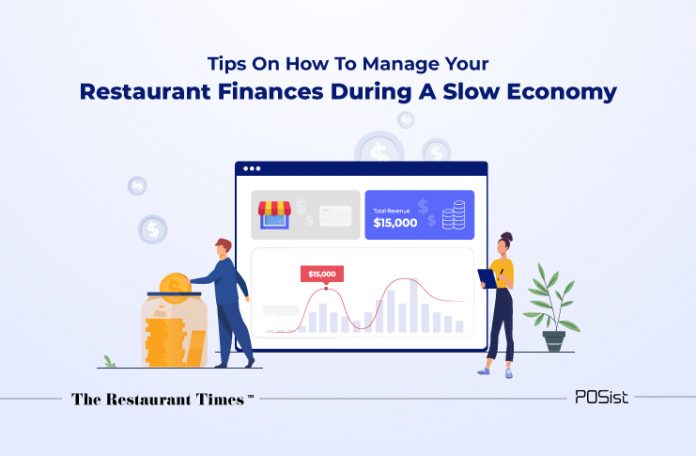Ever since the World Health Organization (WHO) declared coronavirus to be a global pandemic, restaurateurs and F&B managers have been figuring out how to handle their finances to stay afloat. Demand has slowed down considerably, and the restaurant industry is beginning to lay off workers. In this article, we will discuss some effective ways to manage your restaurant finances and stay afloat.
Five Tips For Managing Restaurant Finances
With governments around the world taking steps to stabilize the global economy, it is also critical for businesses to be prepared. Making a choice between letting people go or cutting back on pay is bound to be a difficult one. However, here are five pieces of advice from financial advisors on how to manage your restaurant finances to stay afloat during the coronavirus crisis.
1. Don’t Put Too Much Pressure on Your Investments
Most financial advisors would ask you to leave your investments alone in times of instability. This is actually a great time to relook at your goals and make sure your investments are aligned with them. Changing your strategy based on the dynamics of the market seems to be a good idea. While there would be many asking you to buy stock, since the time is right, some financial advisors like Ryan Marshall, a New-Jersey based certified financial partner disregards that advice.
“It’s more important to invest on a consistent basis than to try to get a deal. Put fresh investments on hold and instead try to keep your money in a “safer place”. Having multiple savings accounts would help you stand strong during the epidemic”
2. Increase Your Emergency Savings
Your foremost financial concern should be to have a stabilized emergency fund, especially in the restaurant industry where you might lose your job if you miss a single day of work and there are hardly any mandated paid sick leaves. The most important thing you can do now is to make sure you have an emergency fund in place and a plan to access lines of credit.
Here’s a savings suggestion you can use- Make a list of all non-essential expenditures, and recurring subscriptions/memberships. Rank them in order of importance and then cut out the items ranked near the bottom of your list.
3. Support Others Amidst The Crisis
Consider yourself privileged if you have enough money to sustain your business during such critical times. If you are healthy and have a constant income, you can help colleagues or employees that are most hit by the pandemic.
4. Look At The Silverline
Even during such a harsh situation, restaurateurs can try to stay afloat by focusing on their delivery operations. Restaurateurs around the globe are either switching to a delivery kitchen business model or are tapping third party networks for delivery.
Along with that, adapting to the current situation by making appropriate amendments in your business model is more of a necessity than a choice. Many established cloud kitchens have shifted to contactless delivery and have created an emergency fund to cover the needs of their delivery staff.
5. Step Away From The Fear
Step away from social media and other TV channels that may be contributing to your anxiety about the economy and hard-hit industries. There is absolutely nothing you can do to prevent the fallout of the pandemic, apart from staying home and taking necessary precautions.
“In every previous health scare, the markets reacted negatively, and over the course of three to six months after the initial shock, markets returned to normalcy, and in most cases, the markets produced a positive return,” says Alexander Koury, a Phoenix-based CFP.
All in all, there has to be a strategy that prioritizes survival, i.e. keeping your business afloat before gradually generating profits again. It is essential to be aware of the spread of the virus globally, about the crash of markets worldwide, and the effect it has on your locality. However, try to stay calm and maintain perspective, since there is no point focusing on things that aren’t in your control.


















